Before reality TV and streaming services dominated our screens, there was something special about gathering around the television to watch game shows with the family. Those familiar faces beaming into our living rooms weren’t just hosts—they were practically extended family members who visited us daily. The true magic makers behind these beloved programs were the hosts who kept everything running smoothly despite wild contestants, technical glitches, and the pressure of live television. These well-dressed gentlemen with their quick wit and reassuring smiles showed us what being “cool under pressure” truly meant.
1. Bob Barker
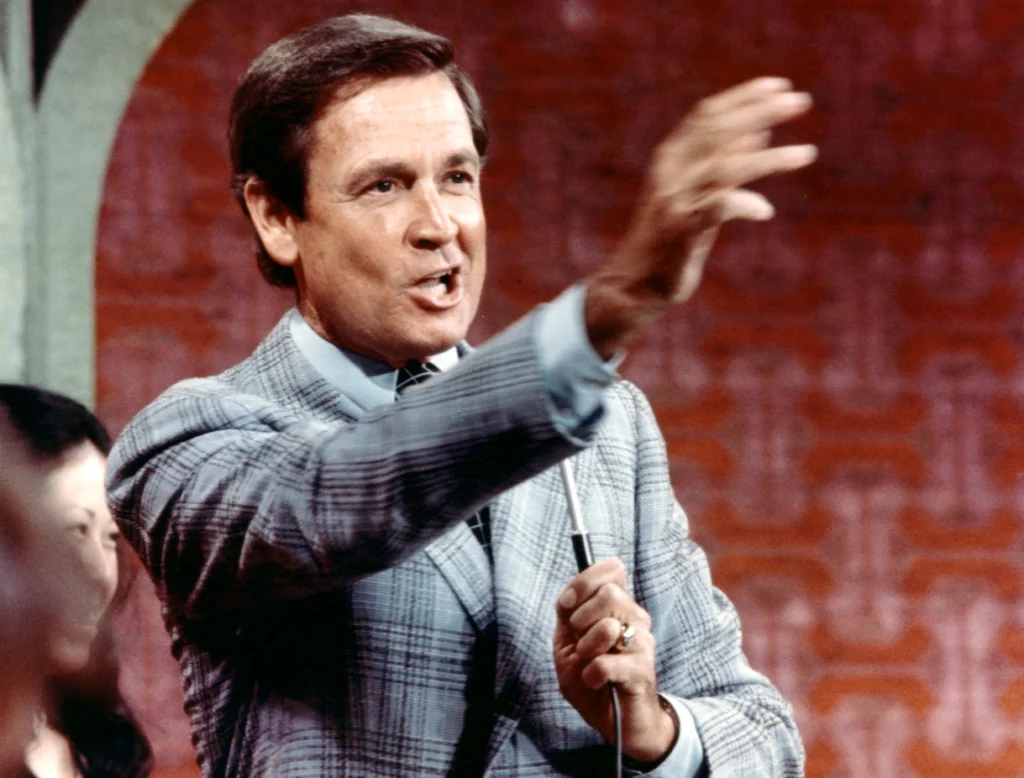
Long before his 35-year run on “The Price is Right,” Bob Barker was already demonstrating his unflappable demeanor on “Truth or Consequences” from 1956 to 1974. His ability to gently guide nervous contestants through challenges while maintaining that perfect smile and immaculate suit became his trademark style. Even when faced with overly excited contestants or unpredictable animals in certain segments, Barker never lost his composure or that signature warmth that made everyone feel at ease. And, of course, as noted by Mental Floss, he was famously an animal welfare advocate.
What made Barker truly remarkable was how he could shift from lighthearted banter to serious gameplay without missing a beat. His voice remained steady and authoritative whether contestants were jumping for joy or experiencing heartbreaking near-misses on the Big Wheel. That perfect balance of friendly encouragement and professional distance set the standard for game show hosting that continues to influence television personalities to this day.
2. Monty Hall
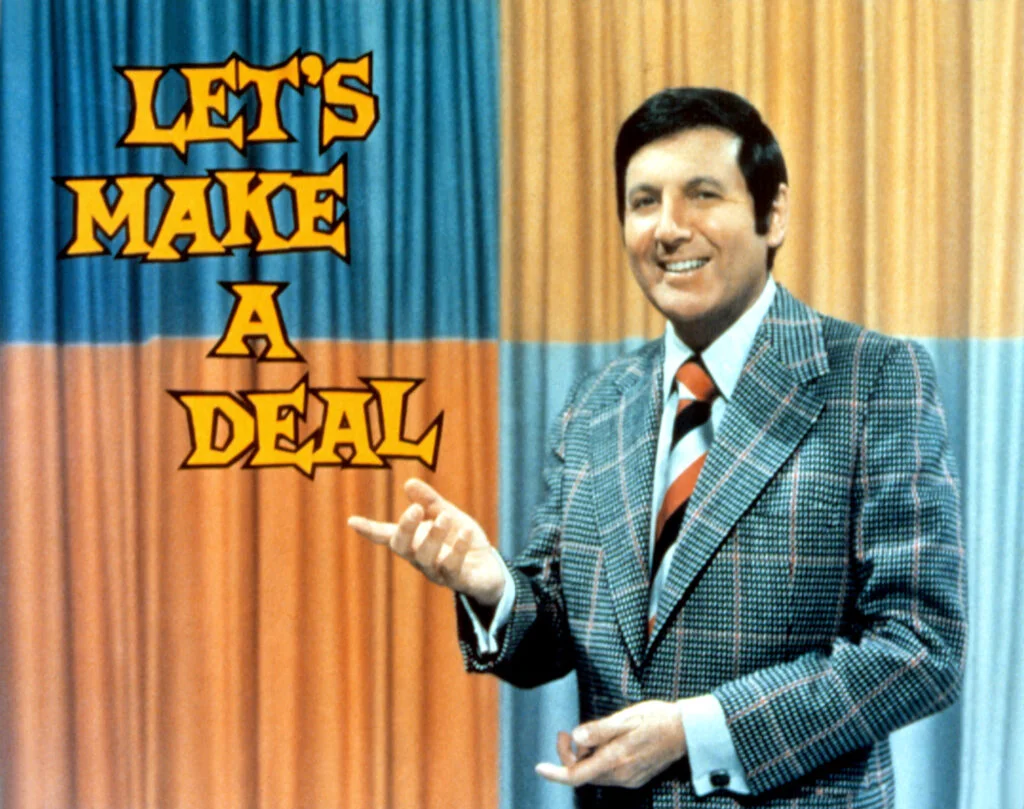
The master of “Let’s Make a Deal” turned the simple concept of choosing between doors into an art form that kept America on the edge of their seats from 1963 to 1977. Monty’s genius lay in his ability to build suspense while simultaneously calming contestants who were often dressed in outlandish costumes and overcome with excitement or anxiety. His gentle nudging and strategic pauses created perfect television moments that had viewers holding their breath in living rooms across America. Womans World is also pleased to outline his lengthy legacy of using his platform for ton of philanthropic work.
What viewers at home might not have appreciated was how Monty managed the complex behind-the-scenes logistics while maintaining that seamless on-camera persona. He was constantly receiving production updates through an earpiece, making split-second decisions about game flow, and remembering detailed information about prizes and contestants—all while looking completely at ease in his colorful suits. The now-famous “Monty Hall Problem” in mathematics is a fitting tribute to a man who made complex probability decisions look like casual conversation.
3. Gene Rayburn
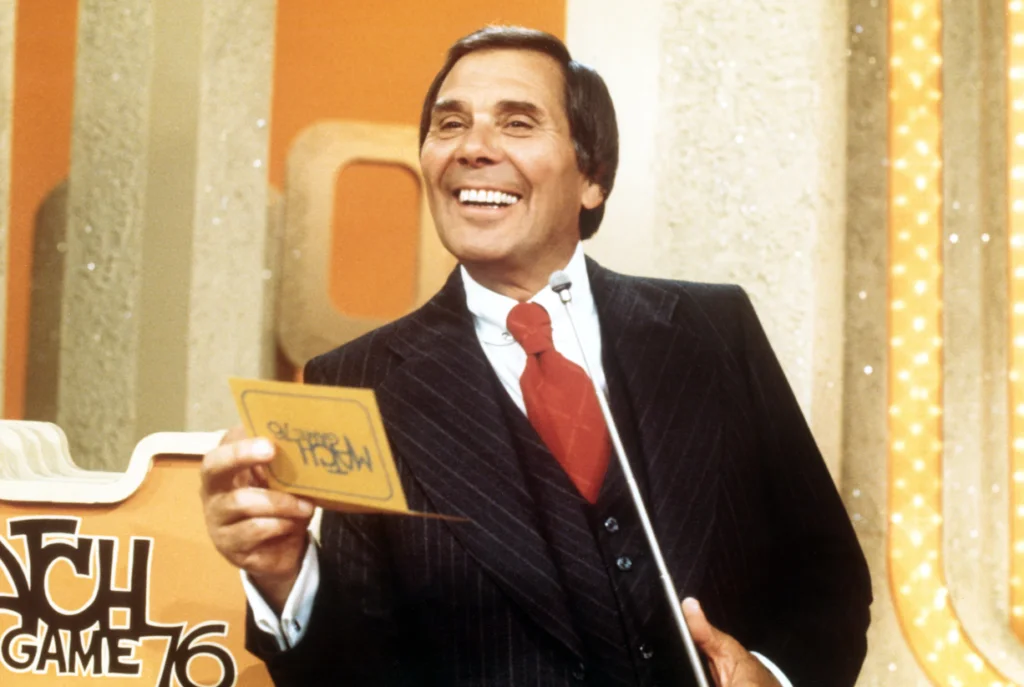
With his extra-long microphone and slightly mischievous smile, Gene Rayburn turned “Match Game” into the perfect blend of humor and gameplay that dominated daytime television through the 1970s. His ability to read often risqué fill-in-the-blank phrases with just the right emphasis—raising those famous eyebrows at precisely the right moment—kept the show dancing on the edge of what was acceptable for daytime television. Gene’s true talent was making contestants comfortable enough to play along with the innuendo without ever crossing lines that would offend the network censors.
Behind that playful personality was a masterful orchestrator who kept celebrities and contestants in line while maintaining the show’s brisk pace. When panelists like Charles Nelson Reilly or Brett Somers went on tangents, Gene could reel them back in with a gentle quip that kept the show moving without dampening the spontaneous atmosphere. His background in radio announcing gave him that perfect voice—authoritative when needed but always with an undercurrent of warmth that made everyone feel they were simply playing games in his living room.
4. Bill Cullen
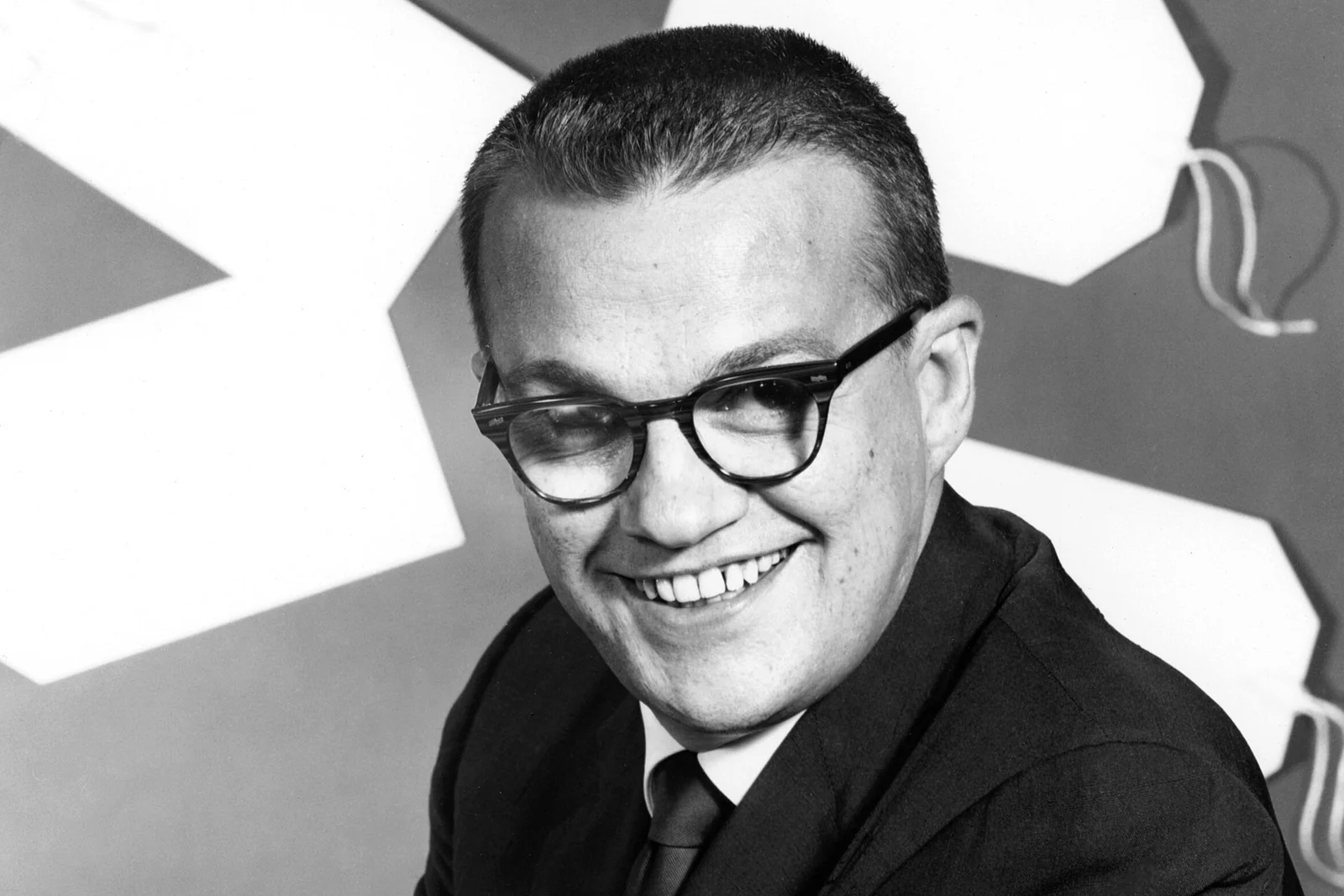
Perhaps the most prolific game show host of the era, Bill Cullen appeared on more than 23 different game shows including “The Price Is Right,” “To Tell the Truth,” and “Password.” Despite overcoming childhood polio that left him with a noticeable limp, Cullen never let physical challenges define him or his career—a determination that showed in his consistently upbeat and engaging hosting style. His encyclopedic intelligence and quick thinking allowed him to adapt to any game format, making him the network executives’ go-to host when launching new concepts. Closer Weekly throws back the curtain to explore the scope of his eventful life and what happened to the famous host.
What made Cullen exceptional was his genuine interest in contestants combined with his subtle humor that never aimed to embarrass or belittle. When contestants made mistakes or became flustered, Bill had an uncanny ability to gently guide them back on track while maintaining their dignity. His fellow game show colleagues often cited him as the host they most admired, with Geoff Edwards once saying, “If Bill Cullen walked into a room and you didn’t know who he was, you’d know he was somebody—that’s star quality.”
5. Peter Marshall
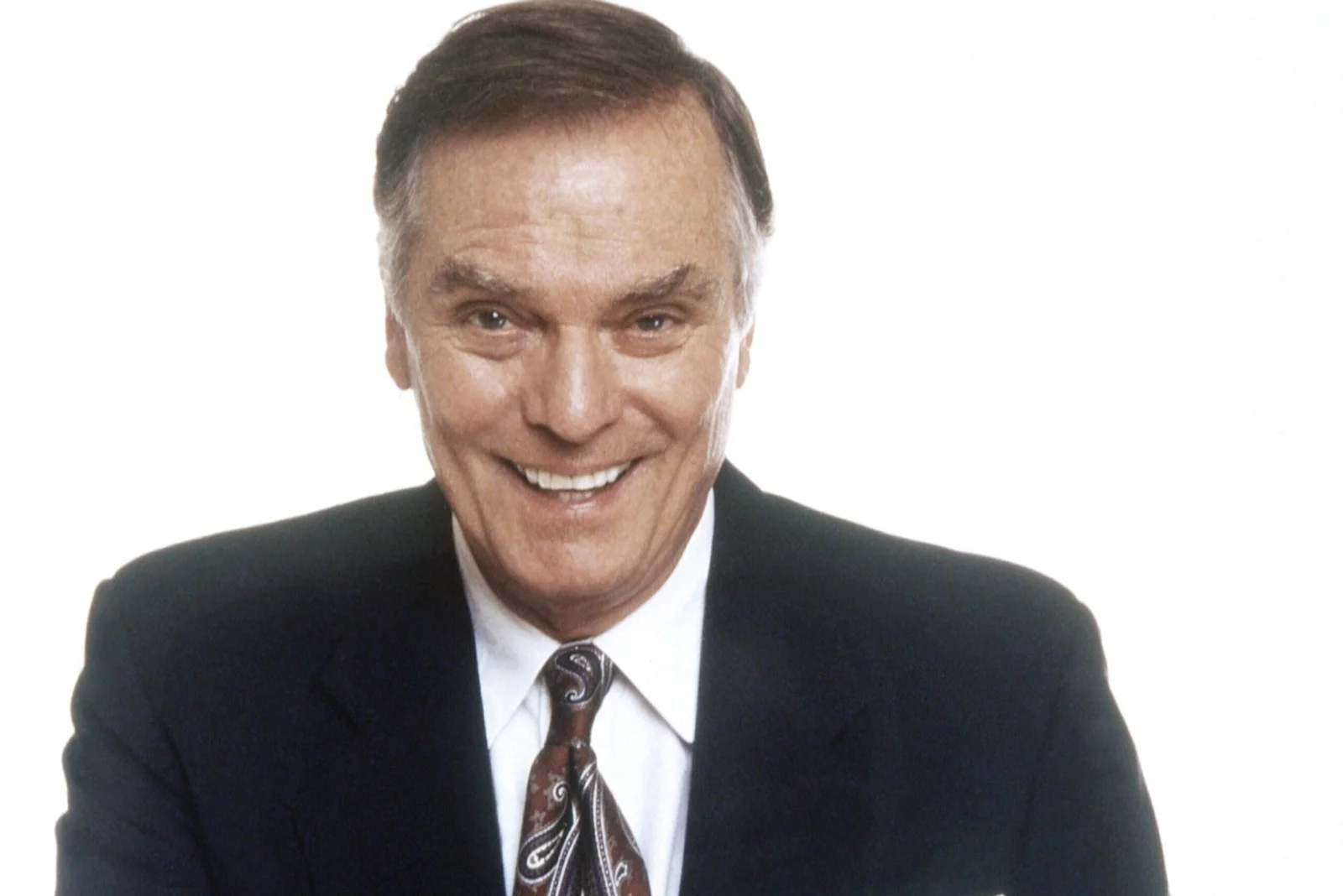
As the unflappable ringmaster of “Hollywood Squares” from 1966 to 1981, Peter Marshall deftly managed nine celebrity personalities while keeping the tic-tac-toe game flowing smoothly for contestants. His perfect timing when delivering the set-up questions allowed the celebrity panelists (particularly center square Paul Lynde) to shine with their witty responses. Marshall’s seemingly effortless ability to transition between comedy bits and serious gameplay created the perfect framework for what could have otherwise been chaotic television. Beliefnet celebrates the legacy Peter Marshall left across the entire landscape of television.
Behind his smooth delivery was a seasoned performer who understood both entertainment and the importance of game integrity. When contestants were visibly nervous about having to agree or disagree with celebrity answers, Marshall would often give encouraging little nods or subtle hints with his voice inflection—never enough to reveal answers but just enough to help players feel more confident in their decisions. The genuine joy he showed when contestants won big prizes revealed his kind heart beneath the polished exterior of a professional host.
6. Allen Ludden
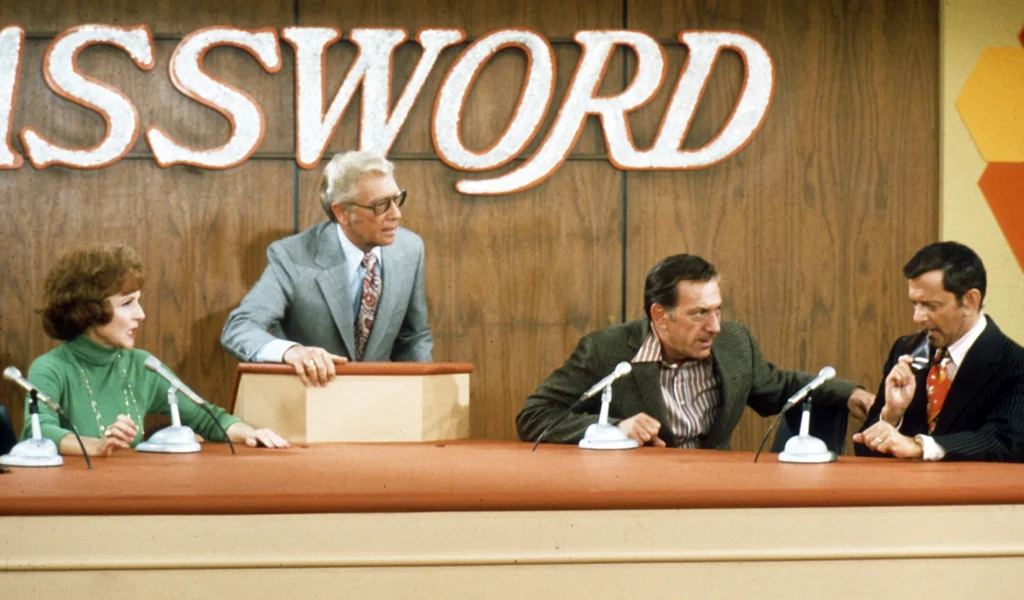
The scholarly host of “Password” brought an intellectual credibility to game shows while maintaining an approachable demeanor that put nervous contestants at ease from 1961 to 1980. Married to actress Betty White (whom he met when she was a celebrity guest on the show), Ludden had a natural gift for making word games seem exciting rather than academic. His genuine enthusiasm when contestants made difficult word connections was never performative—he truly loved language and the game itself.
Ludden’s academic background (he had a Master’s degree and had published several books) gave him a unique hosting approach that elevated the material without ever talking down to contestants or viewers. Even when faced with contestants who struggled with the game format, Allen would provide gentle guidance rather than showing frustration or impatience. His warm interactions with celebrity guests created a comfortable atmosphere that made “Password” feel like an engaging dinner party game rather than a high-pressure television competition.
7. Tom Kennedy
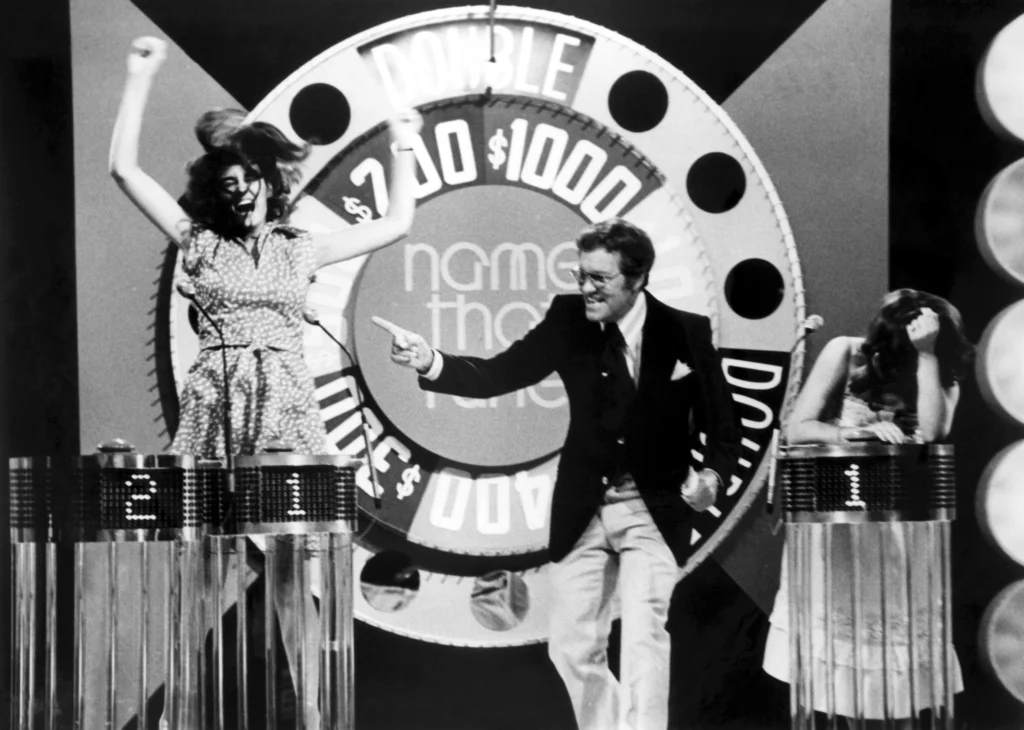
With his bright smile and genuine enthusiasm, Tom Kennedy brought an everyman quality to shows like “Name That Tune,” “Password Plus,” and “You Don’t Say!” throughout the ’60s and ’70s. Unlike some hosts who maintained a slight distance from contestants, Kennedy had a natural way of connecting with players that made their victories feel personal to him. His spontaneous reactions—whether a surprised laugh or an excited congratulation—never felt rehearsed or performative.
What set Kennedy apart was his musical background, which served him particularly well on “Name That Tune” where he could intelligently discuss the songs and occasionally even join in when contestants broke into song. When technical difficulties arose or contestants froze under pressure, Kennedy had a remarkable ability to fill airtime with relevant conversation or gentle encouragement until things got back on track. Behind the scenes, crew members often noted his kindness extended beyond the cameras, treating everyone from contestants to stage hands with the same respect and warmth.
8. Jack Barry
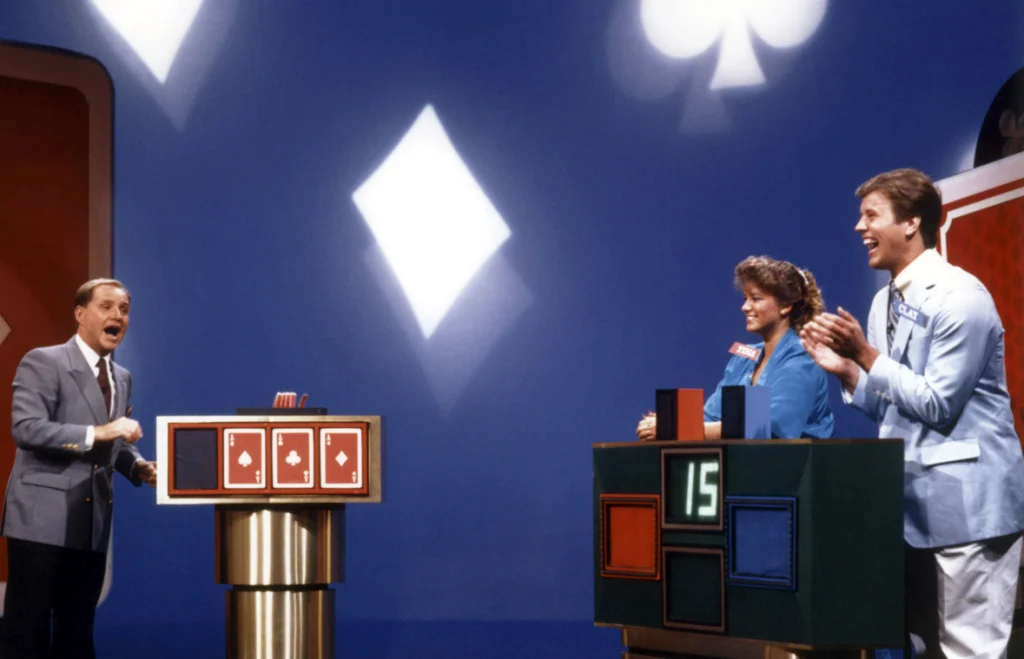
After being implicated in the quiz show scandals of the 1950s, Jack Barry staged one of television’s greatest comebacks with his hosting of “The Joker’s Wild” in the 1970s. His second act demonstrated not just resilience but a renewed commitment to game integrity that became the hallmark of his later career. The slight edge of intensity in Barry’s hosting style added gravity to the proceedings—when he explained rules or announced winnings, viewers and contestants alike understood this was serious business.
Barry’s comeback required him to be beyond reproach, leading to his meticulous attention to detail and fairness in every aspect of his shows. When the giant slot machine on “The Joker’s Wild” would spin, Barry’s focused expression showed genuine concern that everything was functioning properly—a manifestation of his determination to never again be associated with anything improper. This combination of intensity and integrity created a unique hosting presence that distinguished him from his more casual contemporaries and rebuilt his reputation in the industry he clearly loved.
9. Geoff Edwards
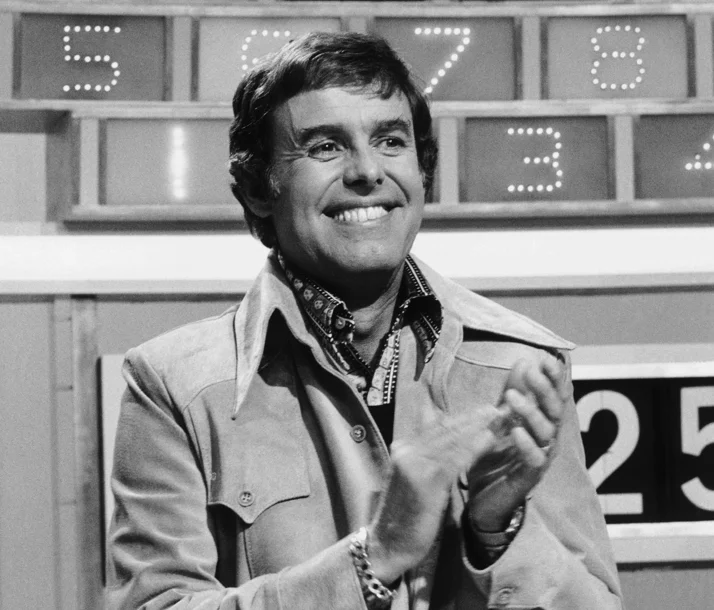
With his trendy hairstyles and fashionable clothes, Geoff Edwards brought a younger, hipper vibe to shows like “Jackpot!” and “Treasure Hunt” during the 1970s. His natural ability to build tension—particularly on “Treasure Hunt” when contestants selected potentially valuable or worthless boxes—created some of game show television’s most memorable moments. Edwards had a particular talent for stretching out reveals with perfectly timed pauses that had contestants and viewers alike holding their breath.
What made Edwards special was his ability to connect with contestants of all backgrounds despite his cool persona. When elderly contestants appeared on his shows, he showed the same enthusiasm and respect he gave to younger players, often taking extra time to make sure they understood the rules completely. Behind his trendy exterior was an experienced broadcaster who had worked in radio for years, giving him the voice control and timing that made even simple prize announcements sound exciting and important.
10. Wink Martindale
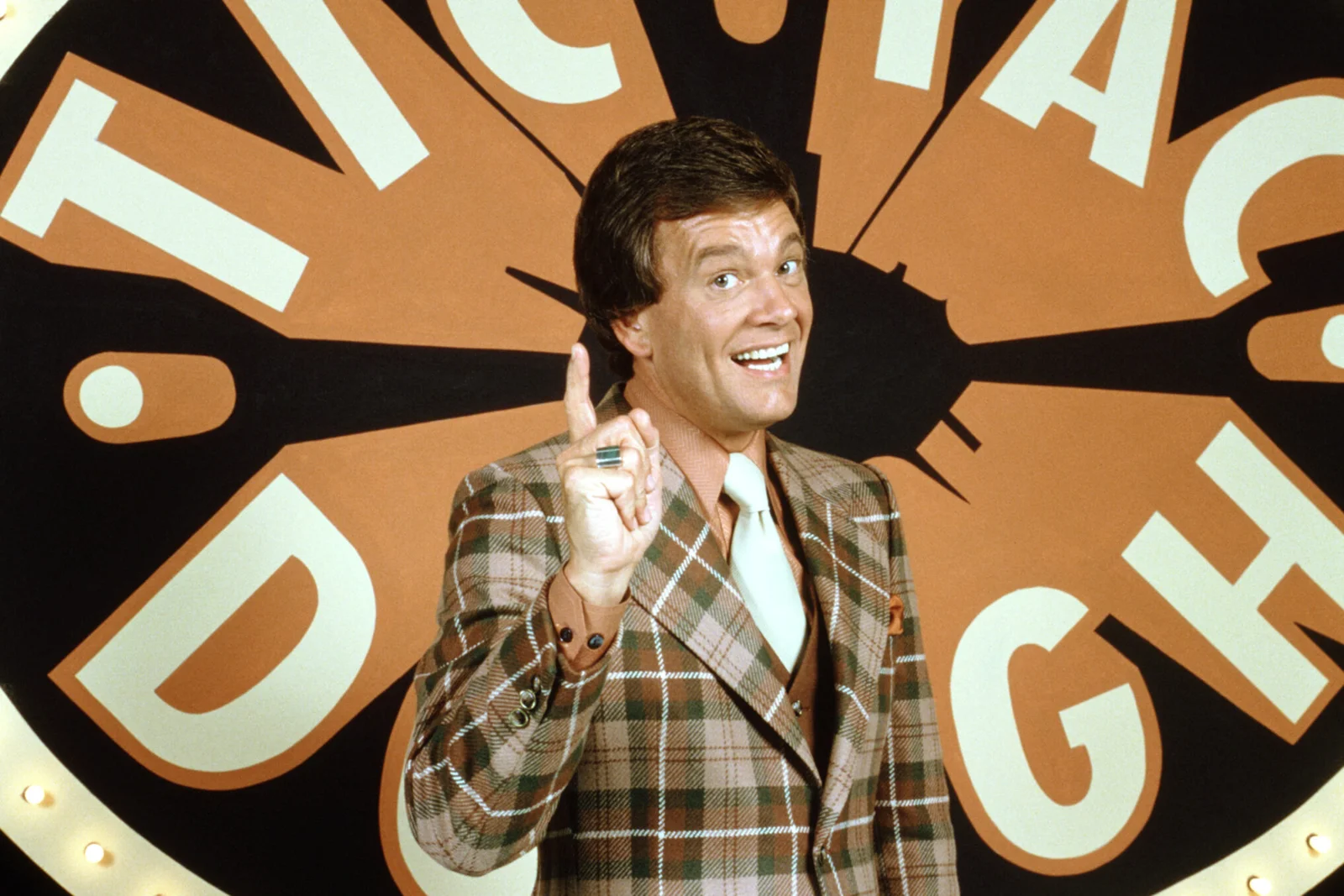
With his distinctive voice and precise delivery, Wink Martindale brought a polished professionalism to shows like “Tic-Tac-Dough” and “Gambit” throughout the 1970s. His background in radio gave him exceptional vocal control—he could build excitement with just the modulation of his voice, turning ordinary moments into dramatic ones with nothing more than perfect timing and emphasis. The nickname “Wink” perfectly captured his friendly on-screen persona that made contestants feel they had a supportive friend guiding them through the games.
Behind Martindale’s smooth exterior was a detail-oriented professional who prepared meticulously for each show. When complex rule explanations were needed, Wink could deliver them with crystal clarity that ensured contestants and viewers alike understood exactly what was happening. His longevity in the business wasn’t just due to his distinctive voice and good looks—it was his reliability under pressure and ability to handle any situation with grace that kept producers calling him for decades.
11. Hugh Downs
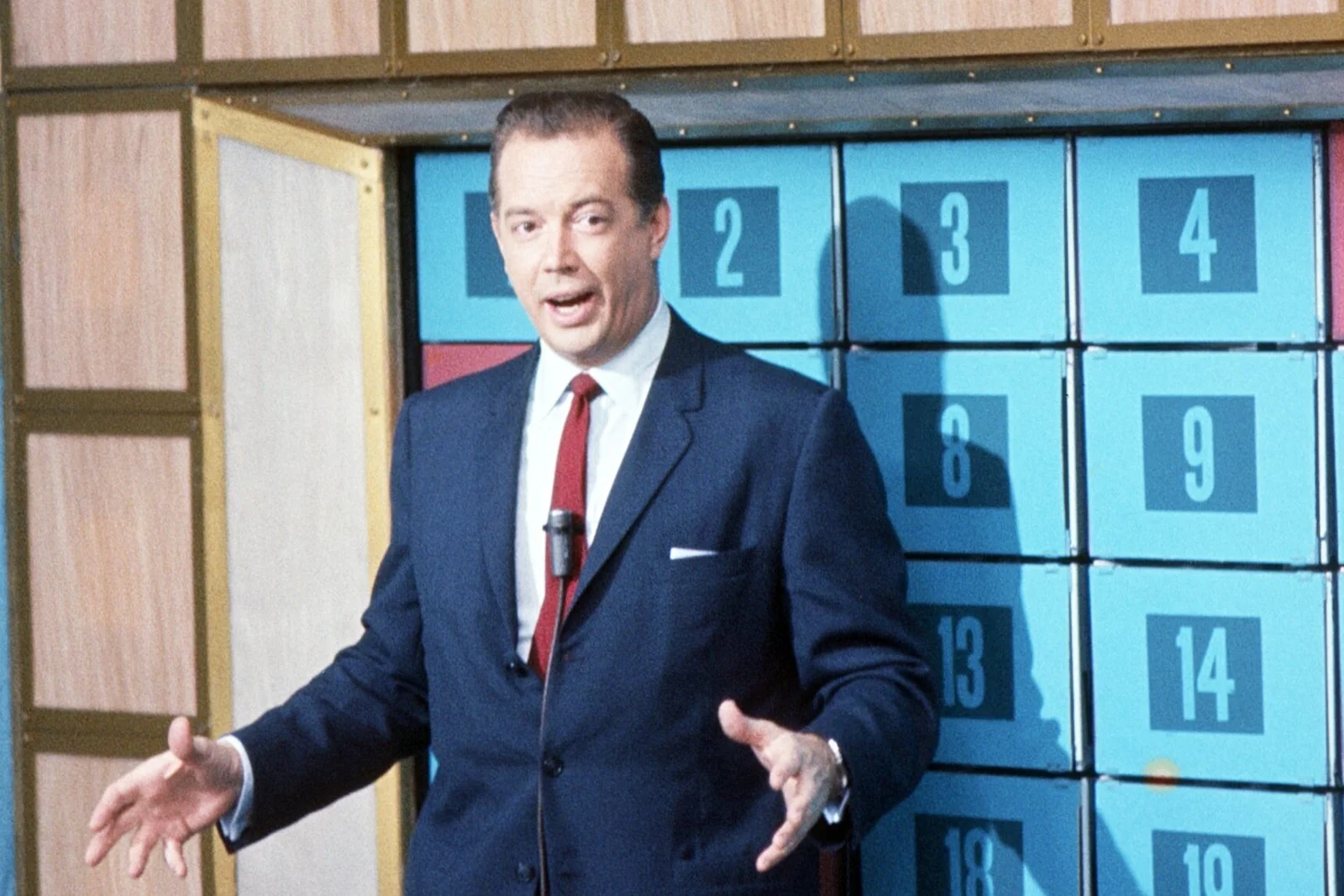
Before becoming Barbara Walters’ co-host on “20/20,” Hugh Downs lent his gravitas and intelligence to “Concentration” from 1958 to 1969, elevating what could have been a simple memory game into compelling television. His commanding voice and thoughtful demeanor brought an air of sophistication that made “Concentration” appeal to viewers who might otherwise have dismissed game shows as trivial entertainment. When contestants struggled with the rebus puzzles, Downs showed genuine empathy without ever making them feel inadequate.
Downs’ impressive background—he was also hosting NBC’s “Today Show” during much of his “Concentration” tenure—gave him a breadth of knowledge that allowed him to converse intelligently with contestants about virtually any subject that arose. His multitasking abilities were legendary among television professionals—he could receive producer instructions through an earpiece, maintain conversation with contestants, and keep track of complex game developments simultaneously without ever appearing distracted. This consummate professionalism, combined with his natural warmth, made him one of the most respected figures in television history.
12. Jim Perry
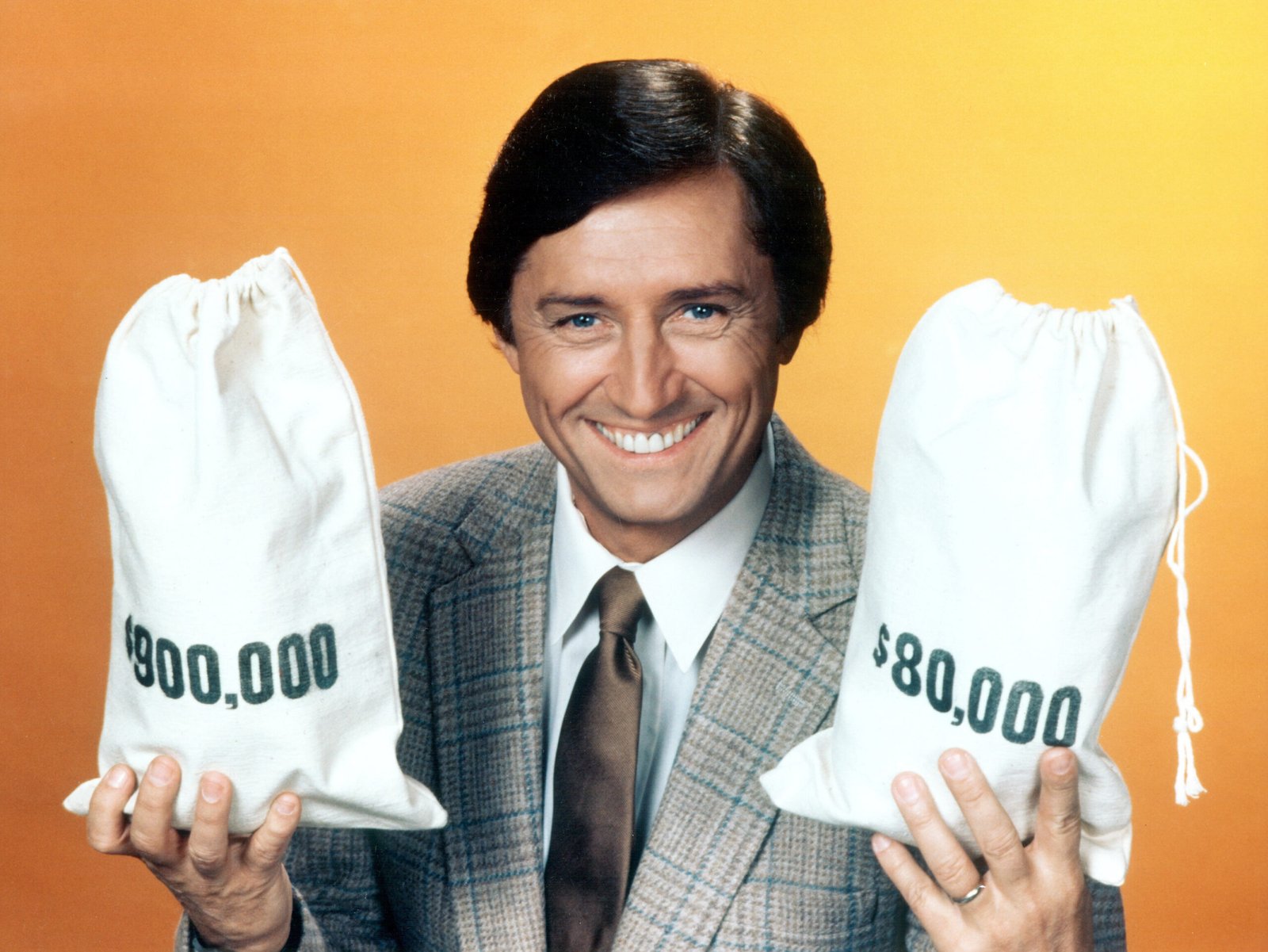
The tall, handsome host of “Card Sharks” and the syndicated version of “Sale of the Century” brought a perfect balance of formality and friendliness to his shows throughout the 1970s and into the 1980s. Perry’s background as a singer and entertainer gave him a performer’s timing that served him well when building suspense around card flips or fast-paced bidding sequences. His signature move of leaning in slightly when contestants faced big decisions created intimate moments of television that drew viewers into the drama of everyday people making potentially life-changing choices.
What distinguished Perry was his versatility—he could shift effortlessly between light banter with contestants and serious game management when large sums of money were at stake. Canadian viewers knew him equally well from his work on that country’s version of “Definition” and other shows, making him a rare cross-border television personality beloved in both markets. Former contestants often remarked on his genuine off-camera interest in their lives and stories, spending time during commercial breaks asking about their families or careers rather than retreating to his mark or consulting with producers.
These television pioneers did far more than just explain rules and hand out prizes—they created an art form that combined entertainment with genuine human connection. Whether calming nervous contestants, handling technical disasters, or managing the unpredictable elements of live television, they showed us what grace under pressure truly meant. Their legacy lives on not just in game show history but in how many of us learned to handle life’s pressures with a smile, a kind word, and the understanding that sometimes, maintaining your cool is the biggest win of all.


